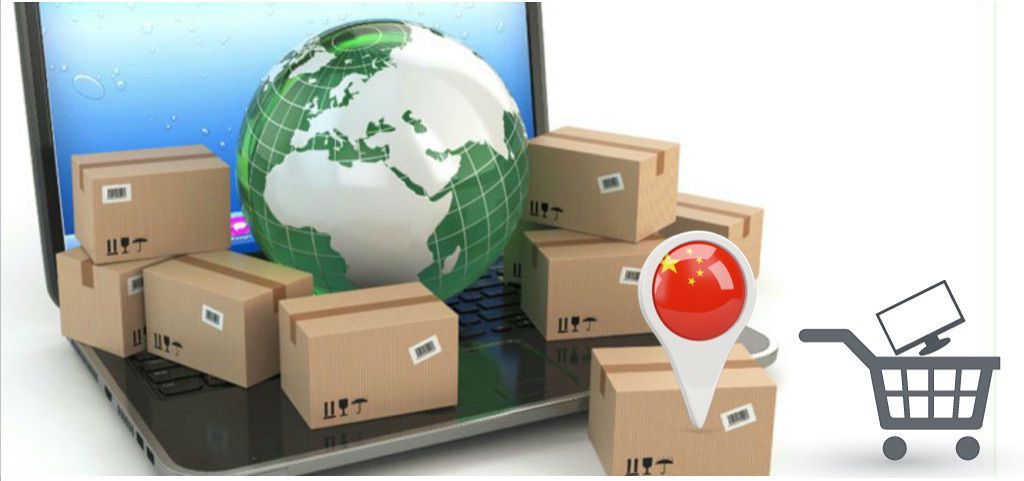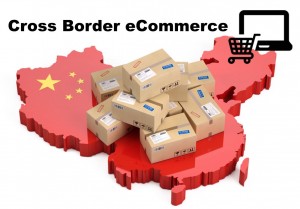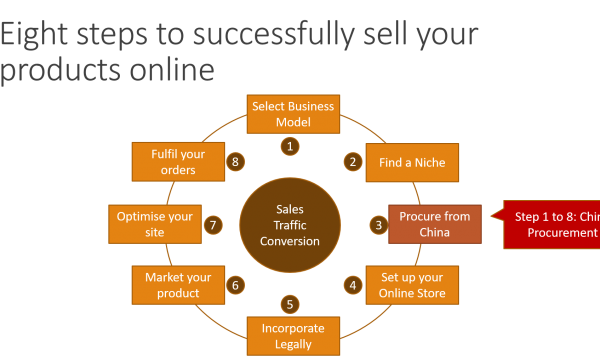
Last April, Beijing announced changes to a pilot program meant to bolster Chinese consumers’ ability to buy online directly from overseas merchants via cross-border e-commerce. Cross-border ecommerce is growing in popularity in China. In 2016, more than 15% of the population made purchases from abroad worth $85.76 billion, according to eMarketer’s first-ever estimates of the consumer trend.
While cross-border ecommerce is not a new trend in China, it is spreading to a much wider population base. By 2020, a quarter of the population, amounting to more than half of all digital buyers, will be shopping either directly on foreign-based sites or through third parties.
The Chinese government made a number of amendments to the regulation of Cross Border E-commerce in the country recently, including a new tax policy and a list of products authorised to be imported via CBEC.
Digital shopping in China grew by more than 70% in 2016. This rapid surge in adoption is in part thanks to a higher standard of living in China combined with a greater exposure to, and knowledge of, foreign products. Last year’s intense growth is also attributable to Alibaba launching Tmall Global in 2014, and JD launching JD Worldwide in 2015, enabling overseas brands to sell their goods directly to digital shoppers in China. In addition, in some categories, such as infant products, consumers in China perceive overseas goods to be higher-quality and more trustworthy.
Cross-border ecommerce goods sold via the business-to-consumer (B2C) channel are expected to take up a growing share of the total cross-border ecommerce market in 2017 as consumers shift to platforms that are more professional and organized. Since the merchants selling on these B2C platforms have to be authorized, they are considered more trustworthy.
The Chinese government has issued updated guidance on rules for cross-border e-commerce in the world’s second-largest economy, giving stakeholders much-needed clarity on potential changes in policy that have hung over the sector for the past year. Overseas goods purchased online and distributed through bonded warehouses would continue to receive some preferential treatment, avoiding quarantine and quality checks that could have brought the import of many popular foreign products to a halt.

Learning Objetives and Program
Online marketplaces such as Amazon and Ebay in US or Taobao and Tmall in China are disrupting the traditional retail model by replacing it with a more direct relationship between buyer and seller. This has had a tremendous impact on supply markets, shipping, logistics as much as any aspect of the retail industry and commercial business activity.
In this course, we will introduce the subject of cross border e-commerce, and will examine how SMEs and entrepreneurs can set up online stores and retail platforms, drive targeted traffic to their sites and successfully sell made-in-China products online. We will see how Chinese e-commerce platforms work.
In the process, we will follow a comprehensive 8 Steps Cross-border E-commerce Process, which will include practical examples, toolkits, links and document templates to help you sell your made-in-China products online

Where and When?

Tianjin / Beijing
The ESEUNE Tianjin Business School campus is located at Yujiapu Free Trade Zone in Tianjin (55 minutes by train from Beijing city center). Tianjin is the fourth largest city in China, after Shanghai, Beijing, and Guangzhou. The city of Tianjin recorded China’s highest per-capita GDP, followed by Shanghai and Beijing. Since the mid-19th century, Tianjin has been a major seaport and gateway to the nation’s capital. Tianjin’s port is the world’s top-level and China’s largest artificial deep water harbor, and the throughput capacity ranks the fifth place in the world. Tianjin harbor is the port of call to international cruises visiting Beijing. More than 300 ‘Fortune 500’ companies have set up base in Tianjin, which is a new growth pole in China and is a hub of advanced industry and financial activity.NOVEMBER
Sunday 5th. November
Meeting-point at Beijing. High-Speed train (55 minutes) to Yujiapu Free Trade zone (Tianjin) where is located ESEUNE Business School.
Monday 6th. November
Day 1 at ESEUNE (Yujiapu).
Tuesday 7th. November
Day 2 at ESEUNE (Yujiapu).

PREVIOUS SEMINAR
Interested in China Procurement? See our October Seminar
Fees: 600 euros
Include Seminar fees, academic materials and certification.
Fees do not include: flights to China, meals, transportation and accommodation.

Professor Javier Cuñat
Javier is an accomplished executive and experienced business manager with +12 years of China/Asia professional experience and proven track record in leading and managing global sourcing, procurement and strategy consulting projects. He has helped numerous MNCs to realise cost savings and increase revenue by successfully implementing China/Asia procurement and market entry strategies.
His project experience and expertise include: global and best cost country sourcing, cost reduction programs, strategic sourcing, category management, spend analysis, Asia/China supply base analysis, supplier appraisal, supplier audits, commercial negotiations, risk management, Asia/China IPO set up, evaluation of procurement organisations, procurement process improvement and capability enhancement.
Javier’s background in economics underlines his passion for research and emerging markets. He has co-authored two business books in the fields of strategy and entrepreneurship (‘Latin America in China’ – LID Editorial 2014, ‘Incorporating China into the Global Mining Supply Chain’ – LAP Publishing 2016) and has been awarded with the ‘Outstanding Thesis Award 2014’ (Tsinghua-INSEAD EMBA) as well as the 2011 ‘Emerald/CLADEA Latin American Management Research Fund Award’. He frequently writes business-related articles which have been published in numerous China business publications such as The China Analyst, Mineweb, Casa Asia, INSEAD Knowledge, Iberglobal, etc.
He is an experienced and much sought-after speaker in procurement and supply chain-related forums such as Procurement Success Summit, SourcingShift Conference or CHaINA Live among others. Javier has worked and studied in Belgium (K.U. Leuven), France and Spain. He holds a BA degree in Administration and Business Management as well as a BA degree in Economics from the University of Valencia. He is also EMBA from Tsinghua-INSEAD. Javier is fluent in English, French and Spanish. He also speaks Mandarin.


